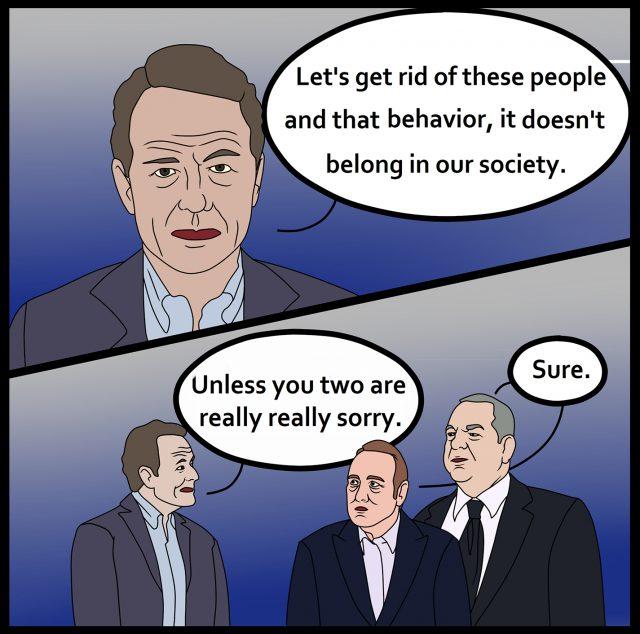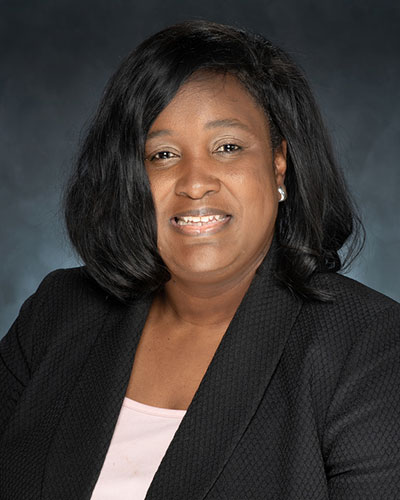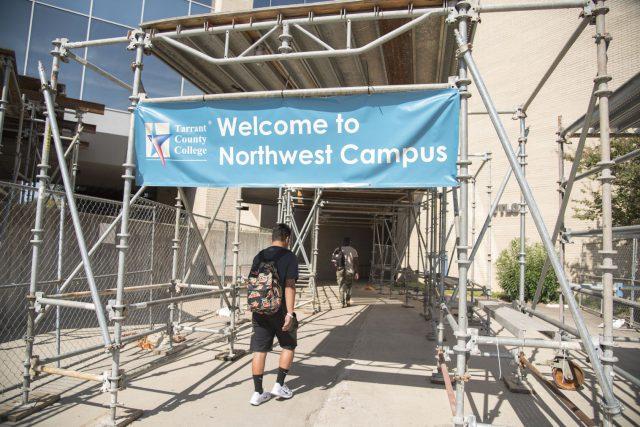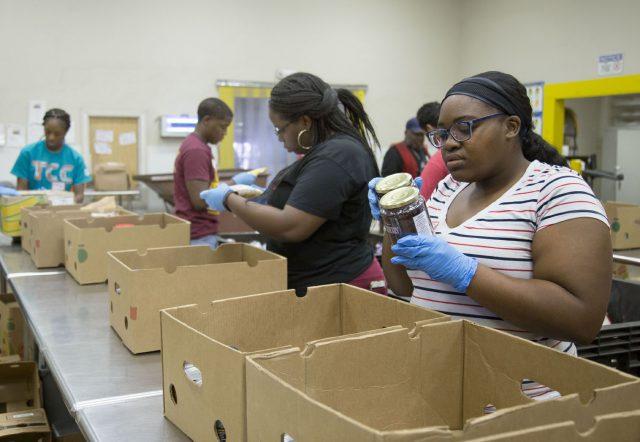When is it OK to deny someone a second chance?
The line isn’t crossed before alleged sexual offenders Harvey Weinstein and Kevin Spacey for Breaking Bad star Bryan Cranston.
“If they [Weinstein and Spacey] were to show us that they put the work in and are truly sorry and making amends and are not defending their actions but asking for forgiveness … Then it would be up to us to determine, case by case, whether this person deserves a second chance,” Cranston said in a BBC interview.
He then said it would be wrong to not give them a chance at redemption.
“We shouldn’t close it off and say, ‘To hell with him, rot and go away from us for the rest of your life,’” Cranston said. “Let’s not do that. Let’s be bigger than that. Let’s leave it open for the few who can make it through that gauntlet of trouble and who have reclaimed their life and their dignity and their respect for others. Maybe it’s possible.”
Victims of these horrifying crimes should rightfully say “to hell with you, rot and go away from us the rest of your life.”
An unaffected, old, white man should not be the person telling victims how to feel and handle their situation.
Afterward, he counteracted his statements and said he’s glad this conversation has been sparked in recent weeks and hopes it will pervade to other industries, warning them it’s not just a Hollywood problem but a societal problem.
“Let’s get rid of these people and that behavior. It doesn’t belong in our society,” Cranston said.
Which is it? Should society forgive or get rid of these predators?
Should society just forgive and set free roughly 160,000 state inmates incarcerated for sexual violence crimes because they asked for forgiveness? No, because 7 percent of sexual violence perpetrators will be arrested for committing another crime once they’ve been released, according to the Rape, Abuse & Incest National Network.
These predators should undeniably be removed from society. And not one victim should feel guilty that Weinstein or Spacey may not make movies again when many of their lives and careers were ruined by their predator’s actions.
As for Cranston, his Old White Men Syndrome (yes, it’s a thing) is showing, and it is he who is now crossing the line.
To come to the defense of two fellow older, white men who have allegedly admitted to multiple sexual offenses is absurd and has no further explanation than bias.
Why be concerned over the shunning of predators in Hollywood when their go-to trick was to blacklist actresses, such as Rose McGowan, when she attempted to speak her truth against Weinstein?
“They threatened [me] with being blacklisted,” McGowan told The Observer. “I was blacklisted after I was raped, because I got raped, because I said something.”
Cranston’s advice is unwanted and unwarranted. No sexual abuse or assault victim should feel obligated to forgive their abuser because an old, white man spewed that advice or feel guilty because of their chosen consequence.
So, yes, it is up to us to determine, case by case, whether Weinstein, Spacey or any other sick, twisted, sexual offender deserves a second chance. But should we give it to them? Not one single chance.









































